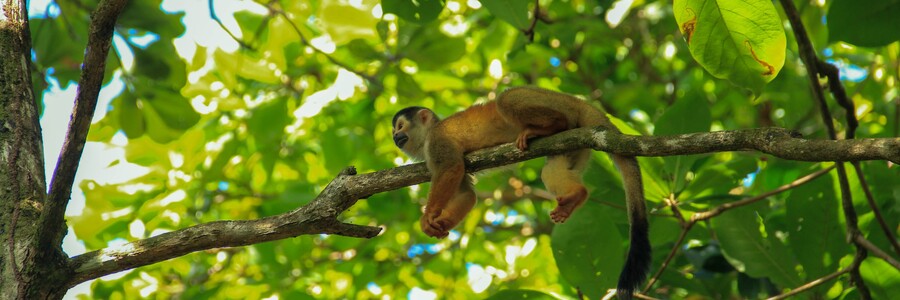Bordering the Atlantic Ocean on one side and the Pacific Ocean on the other, Costa Rica offers an exciting geographical location. The interior of the country is dotted with mountainous terrain, which favors different climatic zones. With its geographic and climatic characteristics, Costa Rica serves as a bridge of biodiversity between the north and south of the American continent.
Thus, it is not surprising that Costa Rica, with its small area covering only 0.01 percent of the earth's surface, nevertheless provides a habitat for about 5 percent of all animal and plant species living on earth. The country's flora alone is divided into seven vegetation zones. In order to preserve the home of these species, Naturefund would like to purchase an area between the La Amistad and Corcovado National Parks and use a green climate bridge to enable the exchange of species between the two protected areas.
Home for endangered species
The land acquisition project is located in the lowland forests of the Amistosa Biological Corridor, in the Greater Osa Bioregion. The region is described as one of the most biologically diverse areas in Costa Rica, and at least fifty percent of the country's species are believed to be found in these forests. In addition to over 700 different species of trees and 1200 species of orchids, the animal diversity is particularly impressive: biologists estimate that approximately 10,000 species of insects, 140 species of mammals, 367 species of birds, and 117 species of amphibians and reptiles inhabit the project area. The area is home to numerous endangered mammals such as jaguars, pumas, ocelots, monkeys, sloths and tapirs. The area has an exceptional degree of endemism - meaning that some species are now found only in these forests worldwide.

